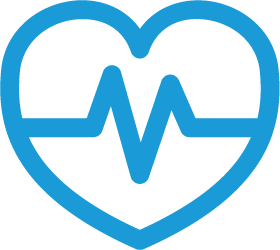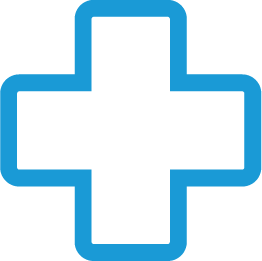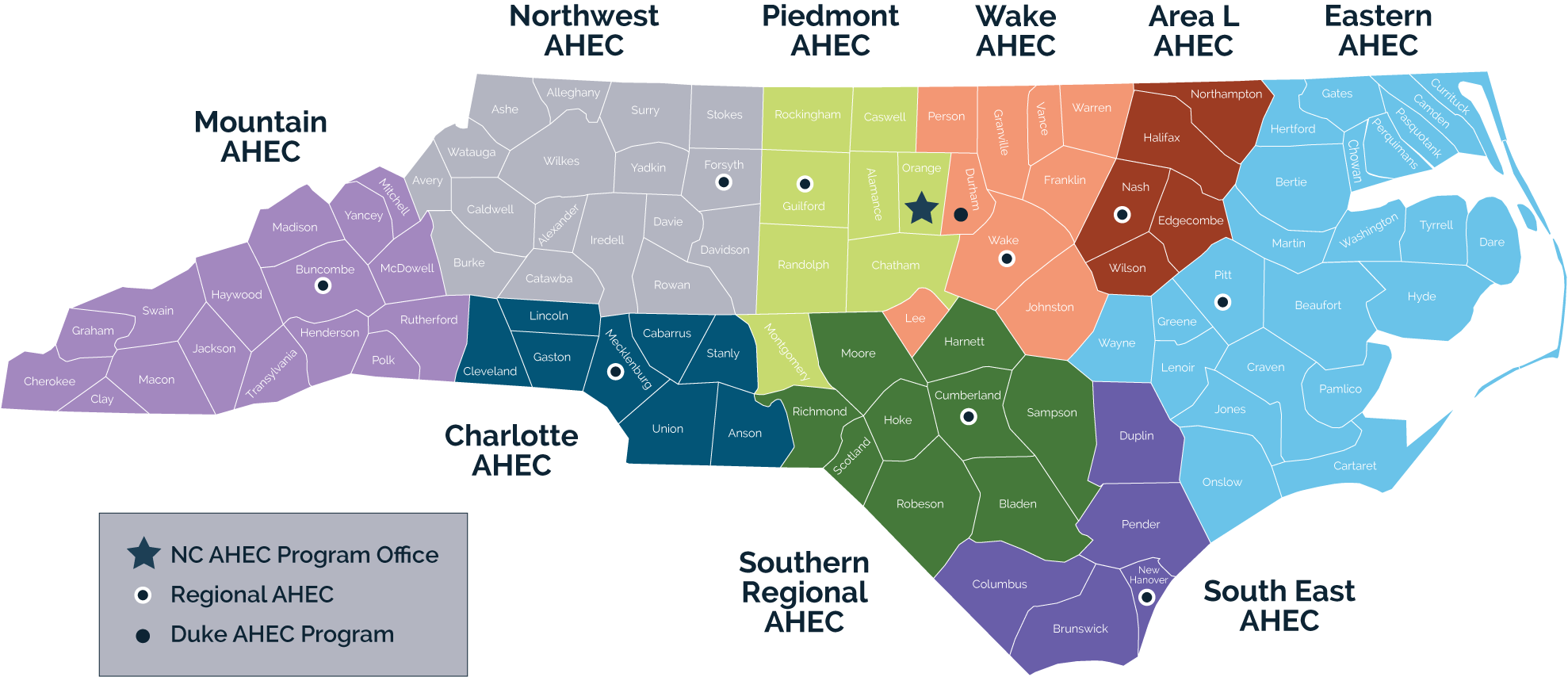Residency teaching programs are central to the reason that NC AHEC was established in the early 1970s: to create a statewide infrastructure to expand the number, the diversity, and the training of primary care physicians.
Today, the NC AHEC Program supports 19 community residency programs in family medicine, general surgery, psychiatry, internal medicine, pediatrics, and obstetrics and gynecology. These community-based residency programs help provide care to poor and vulnerable populations in rural and underserved areas.
An NC AHEC Residency Offers
One-on-one training. An NC AHEC residency is just the right size – large enough to feel part of a team, but small enough to get individual attention. AHEC residents train in community-based and university settings with an appointed faculty member who is available for advice and consultation. Intensive, comprehensive clinical and didactic education is offered to AHEC residents in a highly respected and supportive learning environment.
Diverse learning experiences. Clinical rotations offer opportunities to work with community preceptors, regional health departments, university clinics, correctional institutions, outreach clinics and in other community partnerships. These environments provide residents an opportunity of working with populations with diverse ages, classes, ethnic backgrounds and with health issues that range from simple to the most complex.
Continuity of practice. One of the strengths of the NC AHEC resident experience is its focus on community-based learning. Whether in a university program or a hospital-based program, residents see the same patients over the three-year period of their residency. Over 1,500 residents have graduated from NC AHEC primary care residencies, and two-thirds of them have remained in North Carolina to practice.
Customized curriculums. NC AHEC residency programs allow residents to work with faculty and program directors to create learning approaches that are customized to the needs and special interests of the individual. Teaching faculty work with the resident to create a curriculum that will match his or her professional goals. They encourage residents to explore their interests in specialty or subspecialties while they develop the firm foundation to provide excellent patient care no matter what the circumstances.
Innovative technology. Learning to integrate the latest technology into the practice of medicine is at the forefront of every AHEC resident’s experience. The NC AHEC affiliation with our academic partners ensures access to the best in patient care technologies. The use of electronic devices for access to electronic medical records, lab results and prescription assistance allows learning to occur at the point of care. Life-long learning through evidence-based information technologies is supported by NC AHEC librarians and the AHEC Digital Library, providing residents, regardless of their practice setting, with access to thousands of electronic and print resources.
Making a difference. NC AHEC is committed to demonstrating first-hand the personal and professional rewards of working in primary care practice. NC AHEC residencies provide the ideal combination of academic education, hands-on-clinical experience, and expert support for personal decision-making that prepare physicians to have a positive impact on the health outcomes of their patients.













